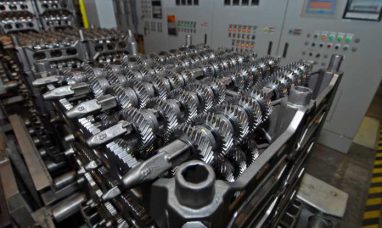Apple (NASDAQ:AAPL)
Apple (NASDAQ:AAPL) plans to start manufacturing the iPhone 14 in India after its initial release in China, reducing the gap between the two countries but not entirely eliminating it as some had expected.
Well-placed sources revealed that the company has been working with suppliers to increase manufacturing in India to reduce the lag in production of the new iPhone from the usual six to nine months for previous versions. Apple has made most of its iPhones in China for a long time but is now looking for alternatives due to clashes between the US government and President Xi Jinping’s administration, which has imposed fresh lockdowns in the country, disrupting economic activity.
According to analysts such as Ming-chi Kuo of TF international securities group, Apple is likely to ship the next iPhone from both countries at about the same time, which would be a significant milestone in the company’s efforts to build redundancy and diversify its supply chain.
The sources who asked not to be identified due to the confidential nature of the move further revealed that Foxconn technology group, the primary manufacturer of iPhones, had keenly analyzed the process of transferring components from China and assembling the iPhone 14 at its factory near the southern city of Chennai. Part of this process included evaluating how Apple’s high standards for confidentiality would be maintained.
Although the long-term goal for both Foxconn and Apple is to start the iPhone production process simultaneously in China and India, it was determined that achieving this feat this year was unrealistic. The best case scenario is that India’s first iPhone 14 will be finished sometime in October or November after September’s initial release. One person familiar with the matter hinted that the Diwali festival set for October 24 was one of the targeted launch dates.
When contacted, Foxconn did not respond to requests for comment, while a spokesman for California-based Apple refused to comment.
News of this significant move sent shares of India’s Apple distributor Redington India ltd soaring by more than 9.5%.
If India manages to catch up to China’s pace of iPhone production, it would be a significant milestone for the country, which has been aggressively marketing itself as a viable alternative amid the covid lockdowns and US sanctions that have threatened China’s position as the world’s factory. Assembling iPhones usually involves high-level coordination among hundreds of suppliers, meeting quality standards, and extremely tight deadlines
While some people within Apple and Foxconn expected this would be the first year for simultaneous production in China and India, this was not in the official plans. The plan entailed getting china production going first and then working out the kinks in India production, according to knowledgeable sources.
Confidentiality is the Main Challenge
Secrecy is the main hurdle to overcome in Apple’s attempt to narrow India’s production gap. Apple is known for keeping new product details confidential, and it’s likely to prove challenging to maintain the same rigorous controls in a second country.
People familiar with the matter said that local executives in the country weighed entirely sealing off a section of one of Foxconn’s assembly lines sequestering workers and looking at all possible angles in which security around the new phones could be compromised. However, the extreme security controls and tight seclusion of its china facilities would likely be hard to replicate.
Furthermore, Apple has been worried about Indian customs officials who usually open packages to determine whether the materials match their declarations which could be another point of vulnerability for its confidentiality.
India’s factories and workers haven’t been able to seamlessly adapt to the highly controlled practices that Apple demands from its suppliers. Since Apple began its contract manufacturing in India through Foxconn and Wistron Corp. in India half a decade ago, workers have brought operations to a standstill over salaries and food quality in two separate incidents.
Featured Image: Megapixl @Pojoslaw















